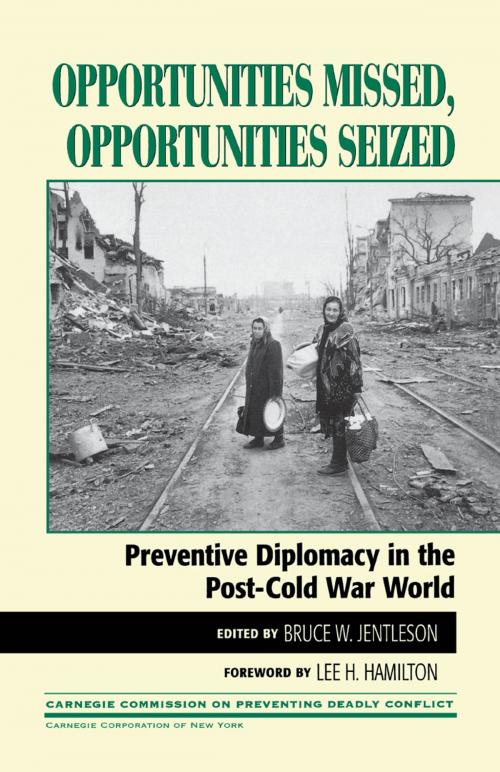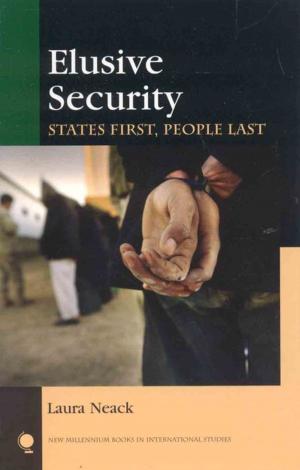Opportunities Missed, Opportunities Seized
Preventive Diplomacy in the PostDCold War World
Nonfiction, Social & Cultural Studies, Political Science, International, International Relations| Author: | Alexander L. George, James E. Goodby, Jane E. Holl, Heather F. Hurlburt, Bruce W. Jentleson, Bruce Jones, Michael S. Lund, John J. Maresca, Michael J. Mazarr, Kenneth Menkhaus, Louis Ortmayer, Katharina R. Vogeli, Susan Woodward, I. William Zartman, Gail W. Lapidus, Astri Suhrke, Senior researcher | ISBN: | 9781461611370 |
| Publisher: | Rowman & Littlefield Publishers | Publication: | November 22, 1999 |
| Imprint: | Rowman & Littlefield Publishers | Language: | English |
| Author: | Alexander L. George, James E. Goodby, Jane E. Holl, Heather F. Hurlburt, Bruce W. Jentleson, Bruce Jones, Michael S. Lund, John J. Maresca, Michael J. Mazarr, Kenneth Menkhaus, Louis Ortmayer, Katharina R. Vogeli, Susan Woodward, I. William Zartman, Gail W. Lapidus, Astri Suhrke, Senior researcher |
| ISBN: | 9781461611370 |
| Publisher: | Rowman & Littlefield Publishers |
| Publication: | November 22, 1999 |
| Imprint: | Rowman & Littlefield Publishers |
| Language: | English |
The basic logic of preventive diplomacy is unassailable. Act early to prevent disputes from escalating; reduce tensions that could lead to war; deal with today's conflicts before they become tomorrow's crises. Yet as we look at the record of these first years of the post-Cold War era, it is quite mixed. There have been some preventive diplomacy successes and opportunities that have been seized by major powers and international organizations to help preserve and protect the peace. But there also have been other opportunities that have been missed, with some of the century's most deadly conflicts the result. This study examines ten major post-Cold War cases including Croatia-Bosnia, Rwanda, the Baltics, Russia-Ukraine, Macedonia, and North Korea_to assess the key factors contributing to both the success and failure of preventive diplomacy. The method of case study analysis employed is based on the work of Alexander L. George. Authors include both leading academics and prominent policy officials with first-hand knowledge.
The basic logic of preventive diplomacy is unassailable. Act early to prevent disputes from escalating; reduce tensions that could lead to war; deal with today's conflicts before they become tomorrow's crises. Yet as we look at the record of these first years of the post-Cold War era, it is quite mixed. There have been some preventive diplomacy successes and opportunities that have been seized by major powers and international organizations to help preserve and protect the peace. But there also have been other opportunities that have been missed, with some of the century's most deadly conflicts the result. This study examines ten major post-Cold War cases including Croatia-Bosnia, Rwanda, the Baltics, Russia-Ukraine, Macedonia, and North Korea_to assess the key factors contributing to both the success and failure of preventive diplomacy. The method of case study analysis employed is based on the work of Alexander L. George. Authors include both leading academics and prominent policy officials with first-hand knowledge.















